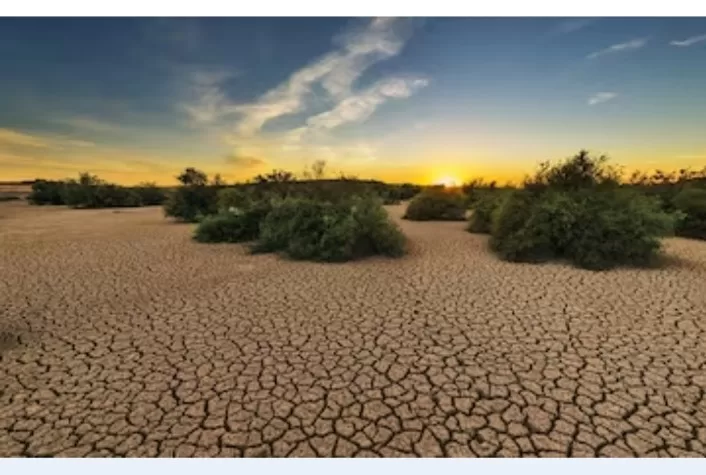A groundbreaking study has revealed that life-threatening bouts of sweltering heat and humidity will sweep across the globe with alarming speed, triggered by even minor upticks in global temperatures. This perilous phenomenon threatens to catalyze a dramatic surge in casualties attributable to the ongoing climate crisis.
These unprecedented heatwaves, capable of claiming lives within a mere six hours, could afflict hundreds of millions of individuals unaccustomed to such extreme conditions. The researchers emphasize that without immediate and concerted efforts to prepare communities, fatalities from heat-related ailments could soar precipitously.
Ordinarily, the human body regulates its temperature by perspiring, allowing the sweat to evaporate and dissipate heat. However, when humidity levels soar, this natural cooling mechanism falters. The study utilized a threshold determined by experiments indicating that when the combined effect of heat and humidity, referred to as the “wet bulb temperature,” surpasses 31.5°C, the body’s capacity to self-cool becomes compromised.
This critical threshold, termed “non-compensable heat stress,” underscores that, in such extreme conditions, sweating alone cannot counteract the adverse effects. In the absence of cooling interventions, such as access to cold water, fans, or air conditioning, fatalities can occur within hours.
Analyzing data from thousands of weather stations worldwide, the study reveals that 4% of these stations had already encountered at least one six-hour period of extreme heat stress since 1970. Alarmingly, by 2020, the frequency of such events had doubled. Hitherto, these occurrences had been largely confined to regions accustomed to blistering heat, such as the Middle East, the Red Sea, and the North Indian Plain.

However, the study’s climate models foretell a rapid expansion of extreme heat stress to previously unaffected regions, triggered by a mere 2°C increase in global temperatures. Given that the climate crisis has already elevated global temperatures by approximately 1.2°C, the outlook is sobering. At the 2°C mark, more than a quarter of weather stations worldwide would experience extreme heat stress approximately once a decade, on average.
Notably, the eastern United States, the Midwest, and central Europe, including Germany, find themselves among the regions poised to confront these unprecedented heat stress conditions. In places already accustomed to high temperatures, such as Arizona, Texas, and parts of California, such extreme heat stress would evolve into an annual ordeal at the 2°C threshold.
The study underscores that the absence of mass casualties in regions previously exposed to extreme heat stress suggests the effectiveness of cooling measures in preventing fatalities. Nevertheless, the abrupt arrival of these perilous conditions in areas historically unprepared for such contingencies is a matter of grave concern.
Carter Powis, who led the study at the University of Oxford, emphasizes the significance of this threat: “Of all the manifestations of climate change, heat is the one that I personally worry the most about, and these results have made me more concerned.” He underscores the fragility of both human physiology and society when confronted with even minor changes in temperature, emphasizing the imperative to reduce emissions.
Dr. Colin Raymond, at the University of California, Los Angeles, who was not involved in the study, emphasizes the need for proactive preparation, as many areas teeter on the brink of non-compensable heat levels. He contends that lives will hinge on the availability of artificial cooling for the most severe heatwaves anticipated in the coming decades.
While previous research used a theoretical limit of a wet bulb temperature of 35°C, beyond which even cooling aids prove ineffective, this study provides real-world data from weather stations and climate models, bolstering the validity of its findings.
In conclusion, the study warns that non-compensable heat extremes will proliferate swiftly, even with moderate global temperature increases. This portends a tangible risk of widespread exposure, potentially affecting hundreds of millions of individuals before they can adapt to the conditions, leading to surges in mortality and illnesses. Even with adaptation measures, extreme heat stress threatens to disrupt daily life dramatically. The urgency to address emissions and mitigate the climate crisis has never been clearer.






